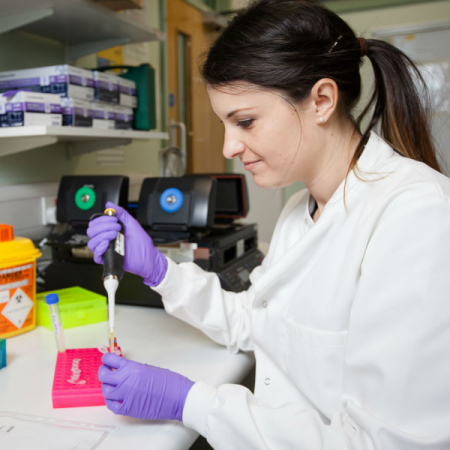Description
During this module, you will consider issues of human confidentiality, autonomy, disclosure, informed consent and natural justice within an ethical framework. The course explores the impact of genomic technologies on individual lives and those of demographic and ethnic groups. There will also be an opportunity to discuss the social implications of the availability of genetic testing and screening, especially in the context of reproductive technologies.
Learn from leading experts in genomics about:
- The impact of genomic testing on individuals, taking into account demographic and ethnic differences.
- Social implications of genetic testing and screening, particularly in the context of human reproduction.
- A legal framework for the patenting of genetic information as well as the use of genetic data for research, diagnostic and therapeutic purposes.
- Obtaining ethical approval for research projects.
- Specific issues in clinical pathways.
Learning outcomes
By the end of this module you will be able to:
- Defend the ethical principles of autonomy, justice and fairness, and apply these to key practical issues such as confidentiality, disclosure and informed consent in scenarios within genomic medicine.
- Critically evaluate the challenges of emerging genomic technologies on society and its values.
- Analyse the current legal framework within which genomic medicine is practised in the UK.
- Evaluate the potential ethical, legal and social impact of genomic medical advances in a clinical pathway.
- Critically appraise the potential impact of genetic databases on human autonomy, healthcare provision and discrimination.
- Identify clinical pathways in your own specialty or field of practice where the use of genomic investigation or techniques may be beneficial to patients, and be able to present a balanced view taking into account the benefits and potential burdens.
- Know the differences in legal frameworks within which genomic medicine is practised in Europe, USA and globally.
- Understand the processes of obtaining ethical approval for research projects, the principles of the Declaration of Helsinki and specific issues in clinical pathways.












